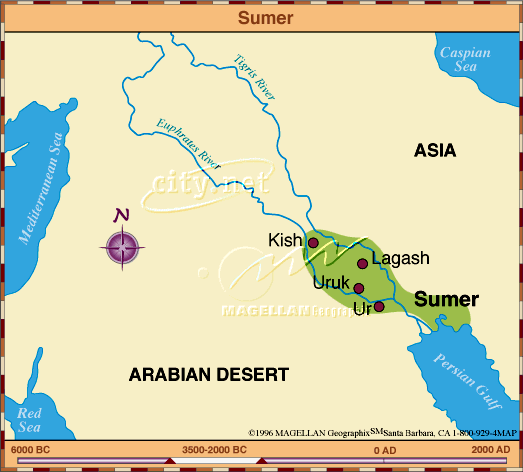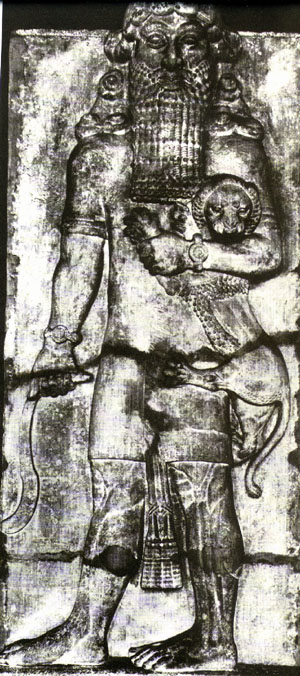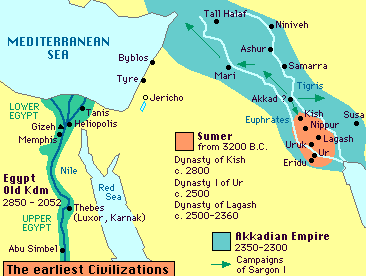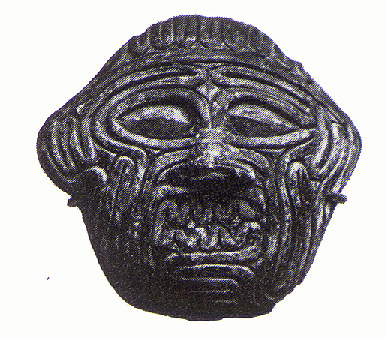
Preparing for Class:
September 6

The Epic of Gilgamesh,
Tablets 1-5
Today
we'll be starting Gilgamesh with an introduction to the culture, followed by
a discussion of the assigned tablets. As you read, be sure to jot down any questions
you may have and ask them before we get started on the lecture. This poem has
a number of ideas and themes that will become increasingly important as you
read, so I'd like you to start by downloading a handout on what to look for
in reading Akkadian literature. Use it as you read and bring it
to class.



In doing
the reading for today, I'd like you to think about the following questions.
- What do we know about
Gilgamesh so far? In what sense is he a great king? What makes him a problematic
ruler for his subjects?
- There are many parallels
between Gilgamesh and other Ancient Near Eastern literature, but the Hebrew
Tanakh (Christian Old Testament) is probably the most familiar to many of
us. Compare Ferry, sections ii-iv with Genesis,
Chapter 2-3. How are these stories alike? How are they different? What
is the Mesopotamian attitude to knowledge? What is the Hebrew attitude? What
is the role of women in the two stories?
- What makes Enkidu an
unusual character? How would you describe him?
- Who tames Enkidu (and
how?) and what significance does this have?
- If Enkidu is uncivilized,
what does it mean to be civilized?
- How does the Mesopotamian
view of civilization and civilized behavior differ from ours?
- If Enkidu and Gilgamesh
are heroes within the context of their culture, what qualities did the Mesopotamians
most value about their heroes?

- Is the 'world view'
of these characters similar to ours? How/how not?
- At the end of tablet
2 Gilgamesh decides that he wants to go to the Cedar forest to kill its guardian,
the terrible monster, Huwawa. Why does Gilgamesh want to go on this quest?
- Does he need anyone's
permission to do this?
- What is the purpose
of the council of Elders and what, if anything, do you think it tells us about
early Mesopotamian political structures?
- What role does Enkidu
play in this adventure?
- How does the author
show the passage of time, relate action, give emphasis?
- What is the "heroic
view" of combat and death?
- The dreams that Gilgamesh
has add psychological depth to the story and are a useful narrative device.
What, specifically, do they contribute?
- Choose a quotation from
the end of tablet 2 through tablet 4 that you think best describes the author's
view of "heroic behavior." Copy the passage onto a page in your notebook and
write a brief paragraph in support of your choice. You should be ready to
read the paragraph to us in class.
Return to Daily
Readings and Assignments Page
Return to Home
Page






